Posts Tagged ‘COVID and the Issues’
COVID and the Issues: Gender-Based Violence
An estimated 243 million women and girls around the world have been subjected to sexual and/or physical violence by an intimate partner in the last 12 months. Experts warn that this number is likely to increase dramatically as security, health and money worries heighten stress within homes, and confined living conditions place women at heightened risk.
Today, in the last of our six-week series, COVID and the Issues, we’re talking with Joanna Kretzer Chun, World Relief’s Director of our Program Resource Team who reveals why many are calling the rise in COVID related gender-based violence the “shadow pandemic.”
In the discussion that follows, Joanna explains how World Relief takes a comprehensive approach to preventing gender-based violence. She explains some of the factors that are creating this “shadow pandemic,” and reveals why women at risk of gender-based violence are less likely to get the help they need right now. While there are no simple solutions, it was encouraging to hear Joanna’s thoughts on what we’re learning as an organization and how these learnings can help women both now and in the future.
To learn more about how COVID-19 is affecting other program areas, view the rest of the COVID and the Issues series here.
COVID and the Issues: Food Security & Nutrition
Last month, Oxfam projected that the number of people experiencing crisis-level hunger could reach 270 million in 2020 as a result of the coronavirus pandemic – an increase of over 80%.
The number is shocking.
Today, in the fifth of our six-week series, COVID and the Issues, we’re talking with Prava Chhetri and Rafael Flores, World Relief’s Technical Advisors for Food Security & Nutrition.
They will share about this concerning projection, as well as how COVID is impacting our nutrition work on the ground.
In the discussion that follows, Prava & Rafael give a brief overview of our food security and nutrition programs and discuss how COVID-19 is impacting global food production and access, as well as the nutritional consequences of this change.
They also open up about how World Relief’s programs are adapting in the face of this crisis, ensuring we do all we can to prevent the next major global famine.

Francesca Albano currently serves as Director of Branded Content at World Relief. With a background in Cultural Anthropology and a graduate degree in Strategic Marketing Communications, she connects her interests in societal studies and global cultures with her training in brand strategy and storytelling. Francesca is especially passionate about grassroots community development and the treatment and advancement of women and girls around the world.
COVID and the Issues: U.S. Programs
World Relief currently operates local offices in 18 cities across the United States. Our teams are committed to helping new immigrants thrive by providing vital services and building communities of love and welcome. In addition to case management, our U.S. offices offer English language classes, job training and placement programs, legal services, youth mentoring, mental health services and more.
Prior to the COVID-19 pandemic, all U.S. programming took place in person. But in March, everything changed. As the country shut down, so did our physical office locations, and our teams were forced to find a way to bring their very interactive programming to a virtual space.
Today, in the fourth week of our COVID and the Issues series, we’re talking with Jennifer Foy, Vice President of U.S. Programs at World Relief. Jenn discusses the new needs that immigrants are facing in the wake of the pandemic and how our U.S. teams are adapting to meet those needs. In Chicagoland alone, the staff received 500 phone calls in less than a week from immigrants who had been laid off and needed help navigating unemployment and finding new jobs.
It’s been overwhelming and unprecedented. But, as Jenn discusses, the resilience and creativity that is being birthed out of hardship gives us something to hope for.
Come back next week to learn more about how COVID-19 is affecting food security and nutrition across the globe. To join us in addressing these issues visit worldrelief.org/covid-19.

Rachel Clair serves as a Content Writer at World Relief. With a background in creative writing and children’s ministry, she is passionate about helping people of all ages think creatively and love God with their hearts, souls and minds.
COVID and the Issues: Health
Women, men, children and entire communities across the globe have been dramatically impacted by COVID-19. In order to stop the spread of the virus, businesses, land and air transport, as well as essential services, have been forced to lock down.
Without the ability to continue treatment and a six-month disruption in access to antiretrovirals, AIDS-related deaths could double in sub-Saharan Africa in 2020 alone.
80 million children are at risk for contracting preventable diseases because immunization services at many health centers have slowed or stopped.
Essential maternal and child health interventions are being reduced and could result in maternal mortality rising from 8% to 38% and children under 5 mortality from 9.8% to 44.7%.
With no access to these life-saving health services, COVID-19 could undo years of progress. Today, in the third of our six-week series, COVID and the Issues, we’re talking with Allison Flynn, World Relief’s Senior Health & Nutrition Program Advisor. Allison gives an overview of our health and nutrition programs and sheds light on the vital importance of creating and providing access to health care and information to individuals and communities, especially in the midst of a pandemic when the normal channels of access are closed.
Come back next week to learn more about how COVID-19 is affecting our US programs. And to join us as we fight back against the residual effects of COVID-19, visit worldrelief.org/covid-19.

Dana North serves as the Marketing Manager at World Relief. With a background in graphic design and advertising and experiences in community development and transformation, Dana seeks to use the power of words and action to help create a better world. Dana is especially passionate about seeking justice for women and girls around the world.
COVID and the Issues: Child Development and Protection
It is estimated that 85 million more girls and boys may have been exposed to either physical, sexual or emotional violence as a result of COVID-19, and as many as 30 million children’s lives are in danger of secondary health impacts such as exposure to deadly diseases like malaria, lack of immunizations and malnutrition as health systems are overwhelmed by COVID-19 patients. What’s more, millions more children are at increased risk of child marriage and child labor over the coming years as family livelihoods evaporate, pushing families to identify other forms of income that harm children.
Though the numbers are staggering, there is something we can do to reduce the number of children exposed to violence and ensure their communities are places where children can thrive.
Today, in the second of our six-week series, Covid and the Issues, we’re talking with Krystel Porter, World Relief’s Program Advisor for Child Development and Protection from International Programs. Listen as Krystel shares more about how our child development and protection programming is equipping communities to serve, protect and raise healthy, thriving children, even in the midst of a pandemic.
Come back next week to learn more about how COVID-19 is affecting food security worldwide and what we’re doing to help. And to join us as we fight back against the residual effects of COVID-19, visit worldrelief.org/covid-19.

Rachel Clair serves as a Content Writer at World Relief. With a background in creative writing and children’s ministry, she is passionate about helping people of all ages think creatively and love God with their hearts, souls and minds.
COVID and the Issues: Economic Development
We know many of you are concerned about how World Relief’s programs and the vulnerable people we serve around the world have been impacted by COVID-19. It’s been reported that 500 million more people could be pushed into extreme poverty as a result of the coronavirus pandemic.
In the first of our six-week video series, COVID and the Issues, we talk with Courtney Purvis, World Relief’s Senior Program Advisor for the Savings for Life program. Watch as Courtney provides an overview of our savings group program and explains how this program is helping people weather the economic upheaval caused by the pandemic. We promise you will learn a lot, and we hope you feel inspired by the amazing work your continued gifts and partnership will make possible.
Come back next week to hear how COVID-19 is affecting children around the world and how our Child Development and Protection programming is adapting. To learn more about partnering with us as we address the COVID-19 pandemic and its effects on vulnerable people across the globe visit worldrelief.org/covid-19.

Mary Milano serves as the Director of Fundraising Content at World Relief.
COVID and the Issues
It’s been five months since World Relief first began responding to the COVID-19 pandemic. Our U.S. and International offices closed their physical office locations in March, and our teams began innovating new ways to continue serving the most vulnerable in the U.S. and across the globe.
In the coming weeks, we will be sitting down with leaders and program experts from across World Relief’s program areas to bring you an in-depth look at how our U.S. and international teams have adapted to serving their communities throughout this global pandemic. You’ll hear more on the issues of economic development, child development, health, gender-based violence, immigration, food security and nutrition.
To kick off this new series, we wanted to give you a bird’s eye view of the work that’s been happening over the last few months and why your continued partnership in response to the coronavirus is so vital.
The vulnerable populations we serve across the globe are the most at risk of increased hunger, poverty and violence as a result of the social and economic effects of the COVID-19 pandemic. In the coming weeks, the number of people struggling with life-threatening hunger could double, and 500 million more people could be pushed into extreme poverty. Continuing our international development activities is essential as this pandemic evolves.
Hear more from Myal Greene, SVP of International Programs at World Relief.
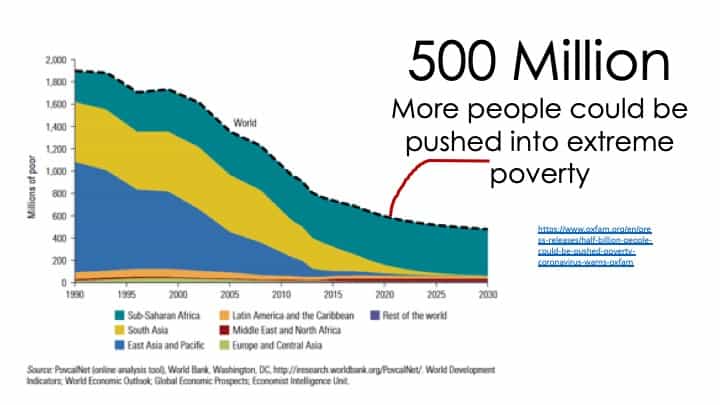
Just like in the U.S., it is now suggested that people wear cloth masks in many of the countries where we work. Our international teams and church partners are working hard to ensure the most vulnerable have access to face masks. Additionally, our teams are adapting their programs and utilizing their vast networks to make sure people have access to vital programs and services.
Hear more from Joanna Kretzer Chun, Director of Program Resources Team.
Listen as Joanna talks about how our international teams are utilizing their networks of church partners to reach thousands of people with important COVID-19 health information.
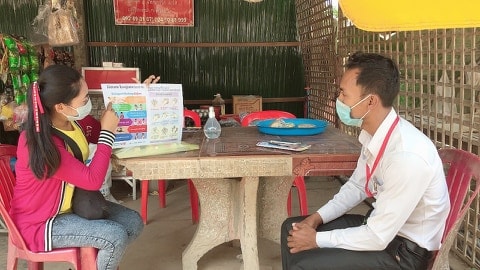
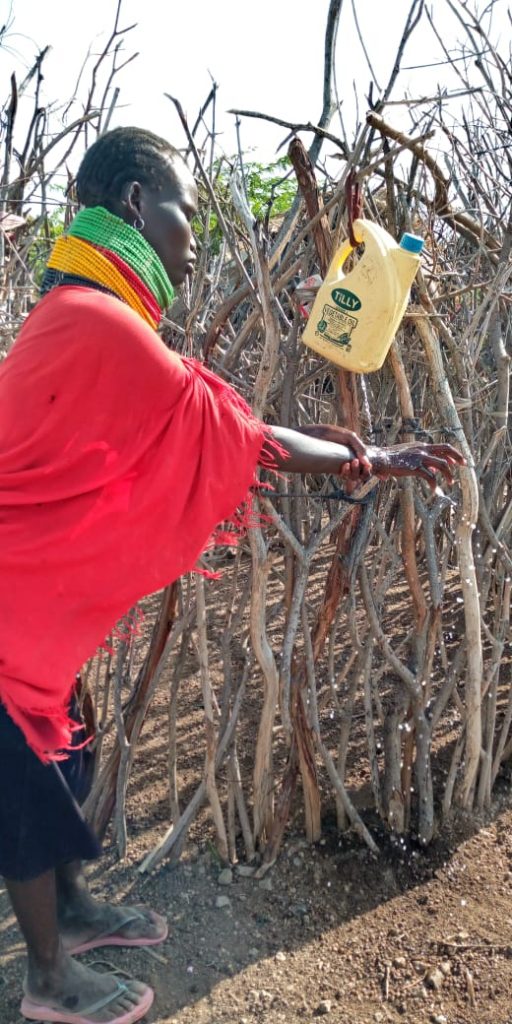
Disseminating accurate COVID-19 awareness and prevention messaging has been a key part of World Relief’s international response. Many of our teams have utilized text messaging platforms to reach hundreds of church leaders with clear and accurate information. In order to reach those living in more remote areas, our teams have had to get creative, using billboards, loudspeakers and radio stations to spread messages.
Hear more from Rhona Murungi, Senior Program Officer and International Operations Director.
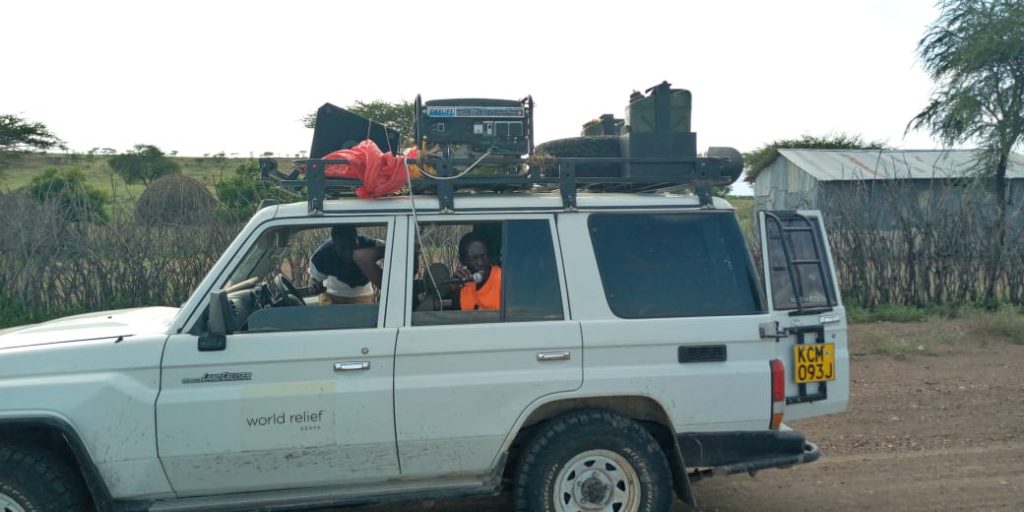
Listen as Rhona talks about the vital role that local churches are playing in reducing the spread of COVID-19.
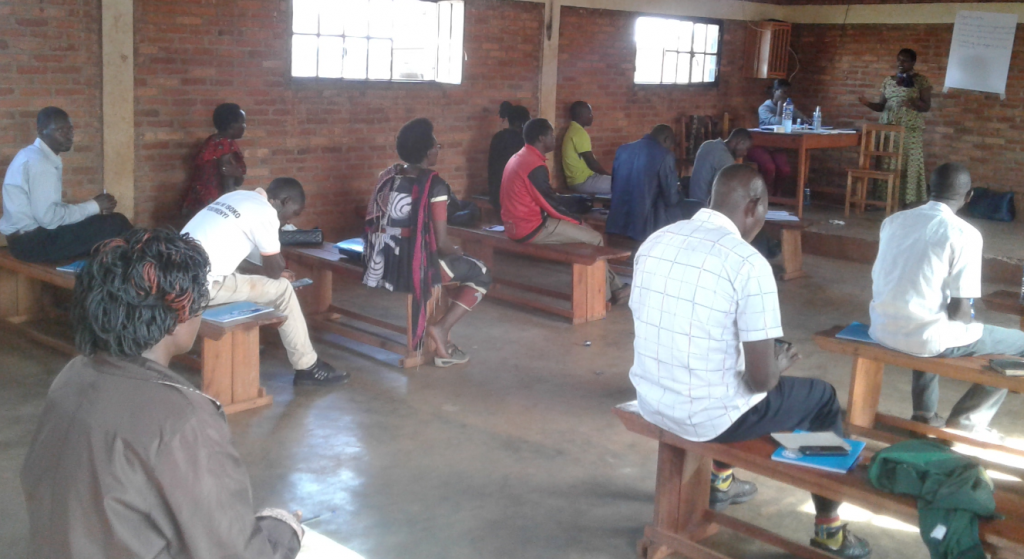
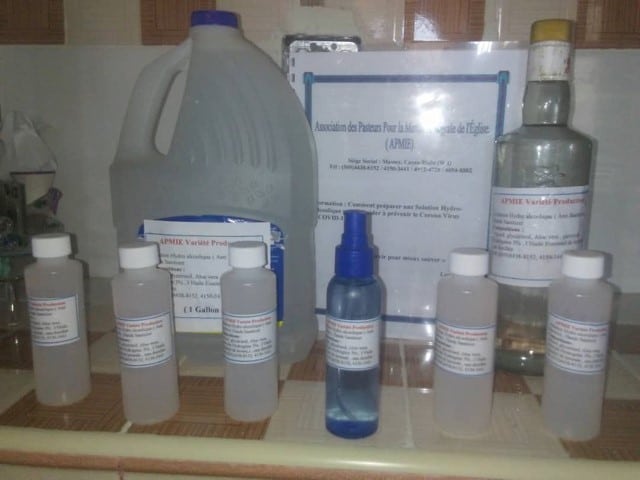
The negative effects of COVID-19 will be wide-reaching. The World Food Program has forecasted a famine of biblical proportions. The number of people facing life-threatening hunger could double in the coming months. Ensuring that affected communities have access to food has been a critical part of our international response.
Hear more from Charles Franzen, Humanitarian and Disaster Response Director.
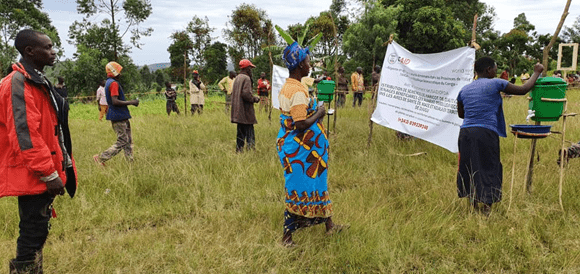
The effects of COVID-19 continue to impact our U.S. teams as well. Many of the immigrants we serve work in industries that have been hardest hit by layoffs and the economic downturn, and our teams are working hard to provide additional services to them during this time of need.
Likewise, with social distancing measures still in place in many states, our teams have continued to innovate by offering many of our programs online. Recently, two of our U.S. office directors wrote about the changes their teams made in order to keep serving immigrants in the U.S.
Read more from Tami McLaughlin, Director of World Relief Fox Valley, and Laura Fontaine, Director of World Relief Quad Cities.
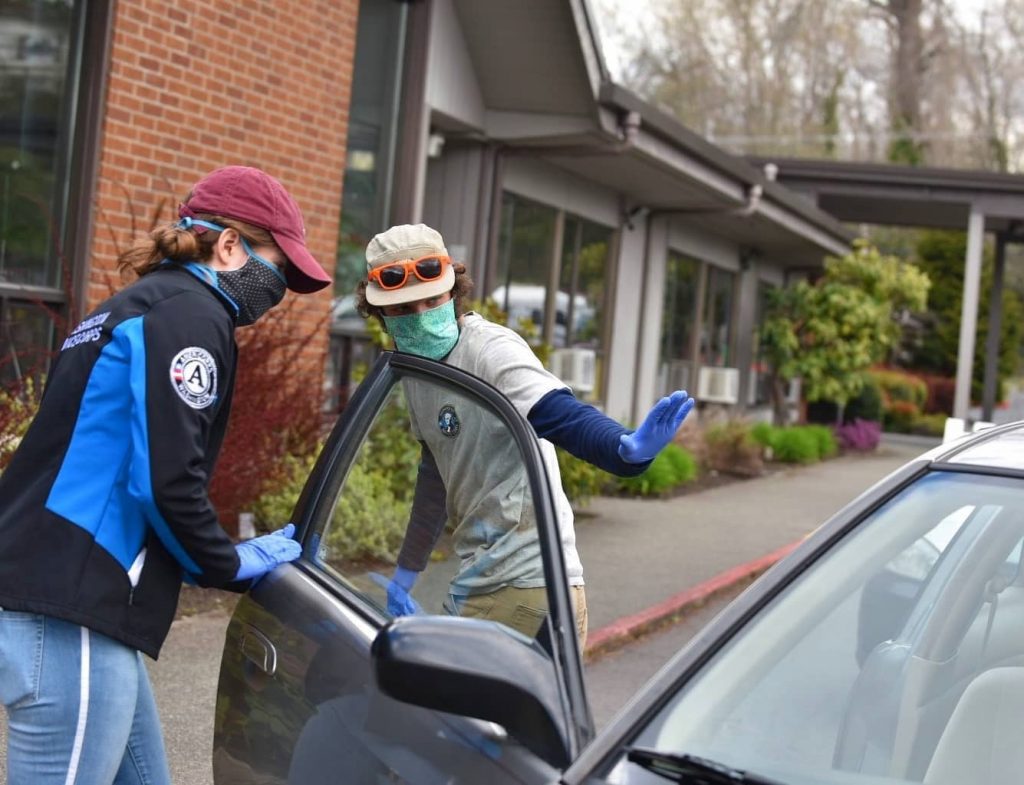

Rachel Clair serves as a Content Writer at World Relief. With a background in creative writing and children’s ministry, she is passionate about helping people of all ages think creatively and love God with their hearts, souls and minds.








